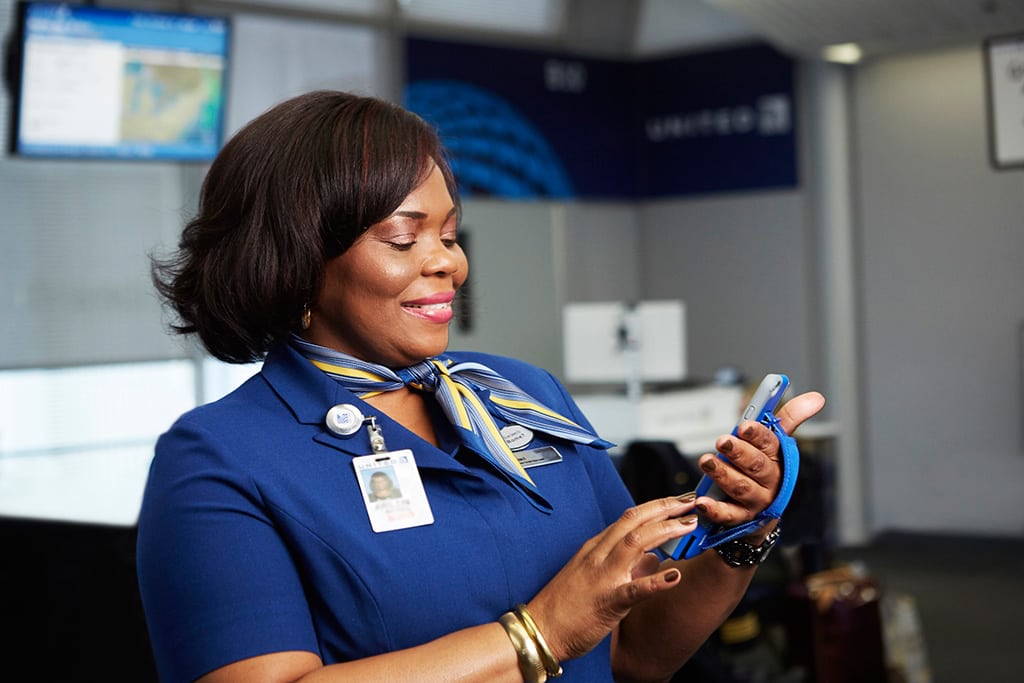Skift Take
United may argue it isn't tweaking its delay compensation scheme to save money. But we're betting this new policy will save some cash. Still, it probably won't bother customers too much. How many of them were expecting compensation anyway?
If you take a delayed United Airlines flight and want compensation for your troubles, you may need to ask for it.
United is no longer proactively offering vouchers to customers on flights delayed fewer than six hours, according to a message sent to employees. The airline said it was making the change “based on feedback we’ve received,” though the message did not expand on who gave this feedback. A United spokesman confirmed the policy shift.
The change covers delays where United is at fault, for reasons like mechanical problems or crew shortages. No U.S. carrier regularly compensates customers for weather-related problems, though some help customers find discounted hotel rooms.
Like most airlines under reputational duress, United had been generous in the last few years with compensation, often offering vouchers to an entire planeload of people for delays as short as four hours. The airline might offer different amounts to customers depending on their frequent flyer status, but everyone would get something — even people who weren’t expecting anything.
As an airline — or any company — improves its reputation, it may tighten how much compensation it gives when it disappoints customers, and that appears to be what United is doing here. Since the famous Dr. Dao incident in April 2017 — that’s when United employees called airport security to forcibly remove a customer from a flight — United has worked diligently to improve its public standing.
Now, for delays between four and six hours, employees will decide what compensation to offer — and they’ll only give it after customers ask for it, according to the memo. United agents can share compensation through a mobile app on their airline-owned iPhones.
“When situations arise, and they warrant compensation outside of this guideline, do the right thing to take care of the customer,” United told employees. “With the ongoing enhancements within the In-the-Moment Care app, you can issue compensation on the spot, recover service disruptions, and avoid sending the customer to a website or service desk.”
Other Airlines
The new policy puts United at odds with at least three other U.S. carriers, which remain more generous when a delay is their fault.
At American Airlines, customers receive proactive compensation for lengthy delays, though spokesman Ross Feinstein declined to break down at what hour customers will begin to see travel vouchers. But American is believed to begin compensating customers before a delay hits six hours.
“American proactively provides compensation if a customer experiences a controllable disruption to their travel plans,” Feinstein said in an email.
Sun Country, a discount airline, also offers proactive compensation, spokeswoman Jessica Wheeler said in an email. Generally, she said, the airline starts sending vouchers to customers after a four-hour delay, but it’s not a concrete rule. “If we provide travel vouchers as an apology for a delay, we will automatically send to all passengers on the flight,” she said.
Many airlines are vague about delay compensation, so customers don’t expect it, and so they won’t be disappointed if corporate policies change. One outlier is JetBlue Airways, which publishes it departure delay compensation scheme on its website. When a three-to-four hour delay is its fault, JetBlue automatically sends customers a travel voucher for $50. For four-to-five hours, customers get $100, and for five-to-six hours, they get $150. For longer delays, customers receive $200 in travel credits.
JetBlue has different compensation guidelines for delays that begin once the customer is already on the airplane, provided the delay is not caused by a security event.
Similar to Delta
United’s new policy is similar to what Delta Air Lines now offers, and that’s probably by design. Like United, Delta offers delay compensation on a case-by-case basis.
Generally, airlines alter compensation schemes depending on how customers view them. Delta is a well-run airline loved by many of its customers, and it can delay a flight for mechanical reasons without worrying its passengers will leave for a competitor on their next trip. Delta CEO Ed Bastian is constantly bragging about his company net promoter scores, a measure of customer satisfaction.
United is not yet at Delta’s level for reliability or passenger satisfaction, but it has made impressive strides to win more customer loyalty, and may no longer need to compensate everyone on an airplane that could seat more than 300 people.
United may also save some money with its new policy, though the airline has stressed cost savings is not the reason for the change.
“This policy empowers our employees to make more personalized service decisions for our customers when a disservice occurs,” an airline spokesman said in an email. “We will continue to analyze feedback on our policies and further invest in approaches that are most appreciated by our customers.”
The Daily Newsletter
Our daily coverage of the global travel industry. Written by editors and analysts from across Skift’s brands.
Have a confidential tip for Skift? Get in touch
Tags: american airlines, delta air lines, jetblue airways, sun country airlines, united airlines
Photo credit: United Airlines customers will need to seek out an airport agent if they want to be compensated for the delays between four and six hours. United Airlines
